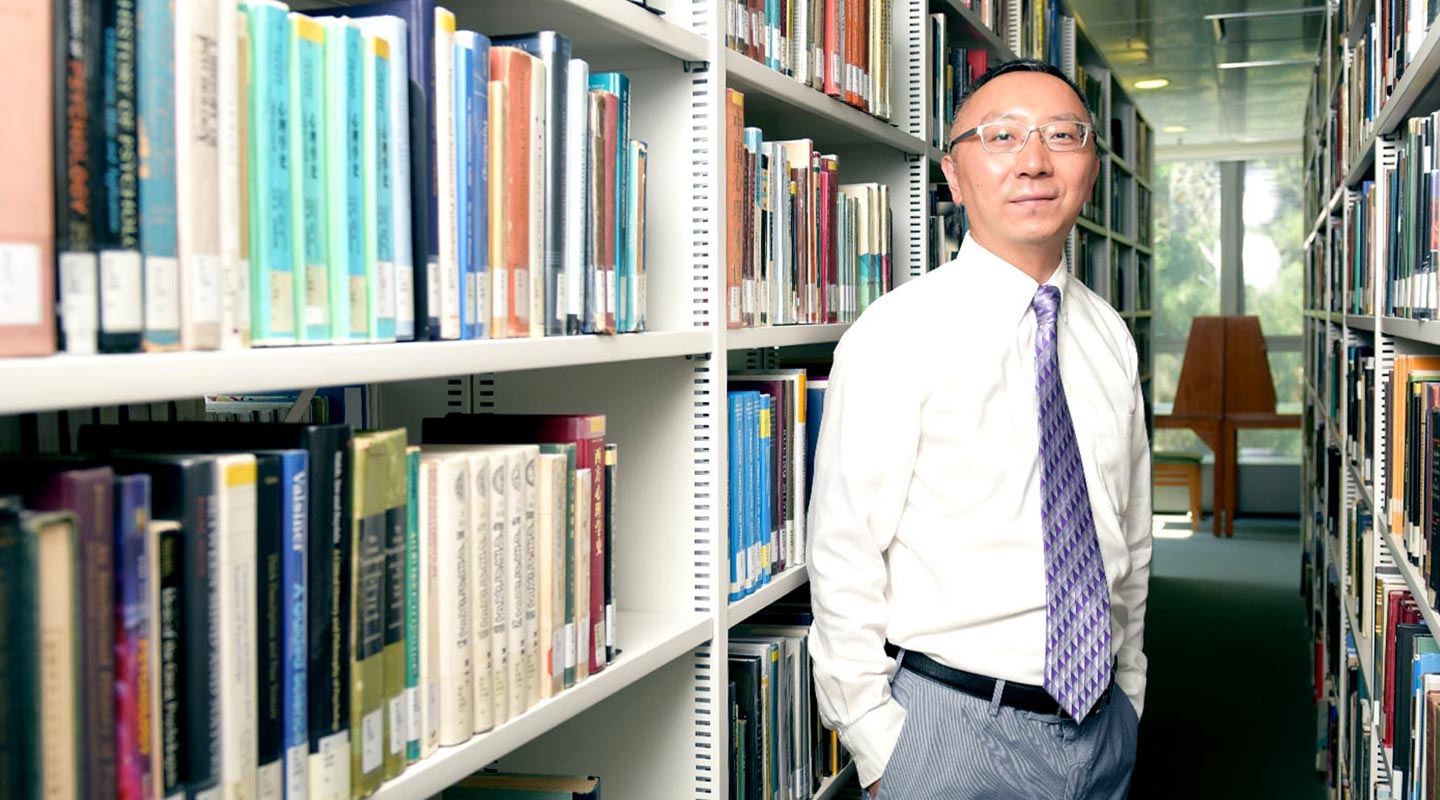The Intractability of Causality
Zhong Lei connects dots that are hard to see

When a student raises his or her hand in class, philosopher Zhong Lei may ponder more than how to respond. Why did the hand go up? Does the student want to say something? Or was it merely a movement caused by the firing of neurons in the brain, transmitting to nerves, and prompting the body to move?
Most contemporary philosophers believe that every physical effect has a completely physical cause. This thesis of Causal Completeness implies that no physical events are caused by our mind.
It’s a distressing argument to Professor Zhong. The ‘amazing and unpleasant implication’ is that we have no free will and agency. We are all a bunch of atoms, essentially, bouncing around and colliding with each other like random snooker balls on a table, only with no snooker player directing the game.
Professor Zhong finds this argument deeply flawed. He makes a crucial distinction between two types of physical entity. In a narrow sense, entities are the fundamental objects of physics: the quantum, the atom, the proton. But physical entities in a broad sense also refer to higher-level physical objects, the complex organisms of human anatomy, animal biology and the big, wide world.
At life’s most-basic level, Professor Zhong concedes that the laws of physics hold. But somewhere between that assemblage of reacting atoms and the formation of incredibly complex organizations that are our bodies and societies, another form of causation came into creation: that of the will.
He accepts the narrow version of Completeness. ‘I agree that every fundamental physical effect has a complete fundamental physical cause,’ Professor Zhong says. ‘But that’s still compatible with the reality of mental causation. Even if mental states don’t cause the fundamental physical states, the mental states can cause higher-level physical states.’
Many philosophers make a leap from the narrow version of Completeness to the broad version. But that’s too great a jump to Professor Zhong. There’s not sufficient evidence for the broad version of Completeness, he insists. In the terms of philosophical argument, ‘it does not follow.’
Professor Zhong prefers to believe that his student intended to ask a question, not that they were sleeping and involuntarily jerked up their hand. It is mental causation that makes us what we are, he believes.
‘If we don’t have mental causation, we don’t have will, we don’t have responsibility, we don’t have agency,’ he notes.
Professor Zhong, who first worked in moral philosophy, became interested in mental causation while studying for his doctorate at the University of Michigan. He found it fascinating, as a fundamental and compelling issue.
‘Our whole civilization seems to rely on mental causation. If somebody saves another person we think ‘Oh that is a good person.’ If somebody harms others, we think that’s evil. All of this only makes sense if the mind can cause our actions.’
Neither morality nor mentality can be reduced to physical phenomena, he adds. As an anti-reductionist, he believes mental states and moral values have distinctive features. ‘They’re not the kind of stuff that can be reduced to the physical,’ he says.
This makes Professor Zhong an ‘autonomist.’ In this picture, the units of physics are interacting at one metaphysical level, while the higher-level entities of the world interact in a more-complex web on another level.
Such findings on fundamental philosophical problems are difficult to understand, and even tougher to come by. To come to conclusions about mental causation, a philosopher must have a solid background in metaphysics, the philosophies of the mind and of science, and even moral philosophy.
Professor Zhong, an associate professor in CUHK’s Department of Philosophy, is one of the very few Chinese scholars contributing to the field of contemporary Western philosophy. That’s led to international discussion of his work, through papers such as "Sophisticated Exclusion and Sophisticated Causation" and "Physicalism, Psychism, and Phenomenalism", both appearing in The Journal of Philosophy.

How does Professor Zhong work? By thinking a lot. He spends three to four hours of almost every day writing and thinking. In the process of writing, he often finds that initially appealing arguments need to be revised or abandoned.
‘Only if you can write clearly, can you think clearly,’ he explains. ‘Writing is a necessary process of good thinking.’
In terms of real-world impact, philosophers serve a more abstract purpose than scientists. While those folks in lab coats may come to very important findings under the microscope, Professor Zhong’s work takes place at a more fundamental level, pondering issues that nevertheless affect us all.
‘I believe philosophical questions are not just philosopher’s questions, but our questions,’ Professor Zhong says. ‘They concern the human self, mind, morality and society.’
That hand raised in class, then, is good pause for thought. The student, hopefully, has something good to say. And Professor Zhong hopes he has a well-considered reply.
‘It’s always difficult to make an original and good contribution to fundamental philosophical issues that have already been discussed by other smart people,’ he says. ‘Philosophy is hard. I need to think and think.’
By Alex Frew McMillan
This article was originally published on CUHK Homepage in Aug 2018.

